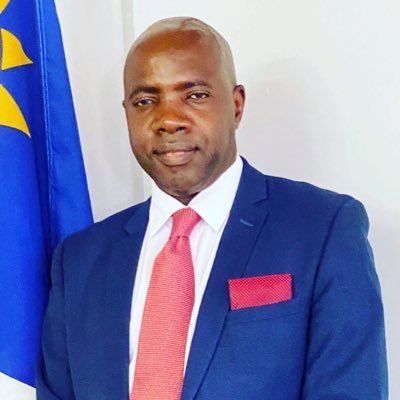Audrin Mathe
Today, President Hage Geingob presides over the official opening of parliament for 2021. Thirty-one years ago, his task was different: he presided over the last sitting of the constituent assembly that adopted the future constitution of an independent Namibia.
The United Nations peacekeeping mission in Namibia ended as a great success. The democratic elections, won by Swapo, were widely regarded as free and fair. The turnout in the five-day election period was a remarkable 97% of registered voters, 57% of whom voted for Swapo.
While the victory was not decisive enough to grant Swapo a two-thirds majority, it puts Swapo in a pole position in engaging other parties in drafting a new constitution.
The first meeting of the constituent assembly took place on 21 November 1989, at Tintenpalast, the future seat of parliament in Windhoek. The leader of the majority party, Sam Nujoma, chaired the meeting. Several procedural issues had already been agreed to during consultation and published as the Constituent Assembly Proclamation of 6 November 1989. The first order of business was the election of the chairman of the constituent assembly. There were two nominations. That of Hage Geingob of Swapo and Andrew Matjila of DTA. Swapo received six votes more than its 41 members; DTA received three votes more than its 21. One member did not vote. Thus, Swapo came close to 48, the number of votes necessary to adopt a constitution. Geingob took the chair from Nujoma. Each party leader was then allowed to make a statement.
In the afternoon, the assembly unanimously appointed a committee to draw up rules of procedure and recommend levels of compensation and expense reimbursement. The committee consisted of the chairman plus 11 other Swapo members and nine members from the other parties.
Accepting his new role, Geingob said he and the leadership of Swapo were aware that Namibia was deeply divided because of years of apartheid and racial stratification in the provision of services and opportunities. He said the election meant “that Namibians would now chart a new future for themselves”. Before adjournment Swapo foreign secretary Theo-Ben Gurirab asked for the floor. He stated that during the election campaign, the impression was created by certain parties that Swapo was somehow opposed to the 1982 constitutional principles which had been agreed to by all the parties concerned and which formed part of the Resolution 435 settlement plan.
He said that, as he was personally involved in negotiating the settlement plan. It was for that reason that he wanted to speak. At that point, DTA chairman Dirk Mudge jumped up on a point of order, saying that it was not possible to have a debate without rules and that the speaker should wait for unti1 the next session after rules were adopted.
With a broad smile on his face, Gurirab asked that Mudge give him three minutes and hear what he had to say. Gurirab then, on behalf of Swapo, made the formal motion that the constituent assembly, at this historic first sitting, adopt the 1982 principles as the guiding principles for the constitution for Namibia. There was no debate, only applause.
The motion was adopted unanimously by acclamation. Mudge went right over to shake Gurirab’s hand. Geingob and his assembly provided the opportunity of free and unfettered expression of opinions by members on every paragraph of the draft constitution until a consensus was reached.
The Drafting Committee of 21 persons never had to vote on any issue during its meetings. Geingob’s approach was not to curtail filibustering but to allow debate to go on until late hours.
The result was that various members would eventually agree on the issue at hand, often without making any change to the original proposal. When he sensed that the views of the members were so strong and the debate was becoming acrimonious, he called for a tea break to cool off the atmosphere.
During the tea-break, he would consult with key players such as Mudge, Adv. Vekuii Rukoro, Gurirab, Hamutenya, Dr Mose Tjitendero, Pendukeni Iivula-Ithana, Nahas Angula and Adv. Hartmut Ruppel to bring the discussions on track. Geingob was widely praised for his role in crafting the Namibian constitution. The meeting of the assembly was not without humour. Nico Bessinger, one of two black architects in Namibia at that time, had the task of making Swapo’s nomination for chairman. In his nervousness, while looking at the interim chairman, he nominated “the President of the South West Africa People’s Organisation, Comrade Sam Nujoma”.
There was a silence, broken by Nujoma saying, “Comrade Nico”. Bessinger recovered and said he meant to nominate Hage Geingob. The tension was broken by laughter. Then Nujoma turned to the DTA, calling upon “Comrade Muyongo”. DTA vice president Mishake Muyongo was Nujoma’s comrade for many years as Swapo acting vice president, before he broke with Swapo in 1980.
ACN leader Jannie de Wet switched from English to Afrikaans in the middle of his speech, smilingly saying that, after all, English was not yet the official language of Namibia.
Geingob would later exploit this revelation from De Wet during consultations on the work of the body. On the morning of 9 February 1990, in front of the Titenpalast, Geingob declared, “We, therefore, adopt this constitution by consensus. Any objection? No objection”. He brought down the gavel quickly before anyone could have a change of heart.


